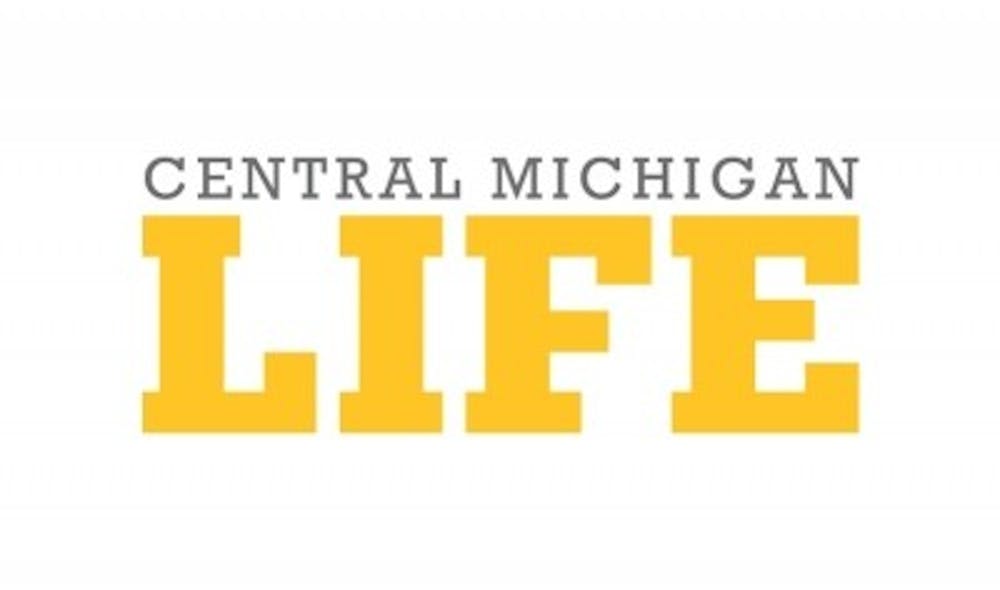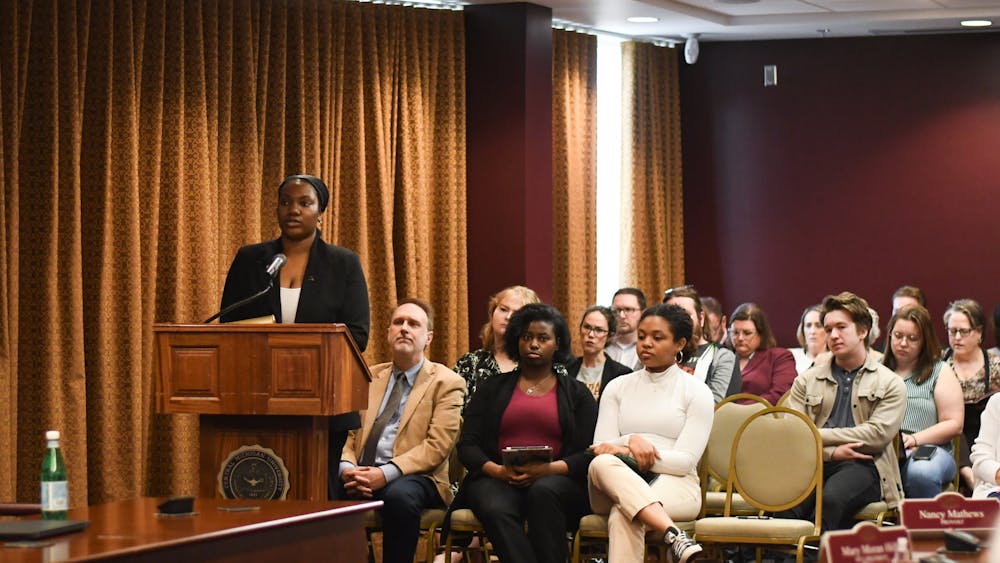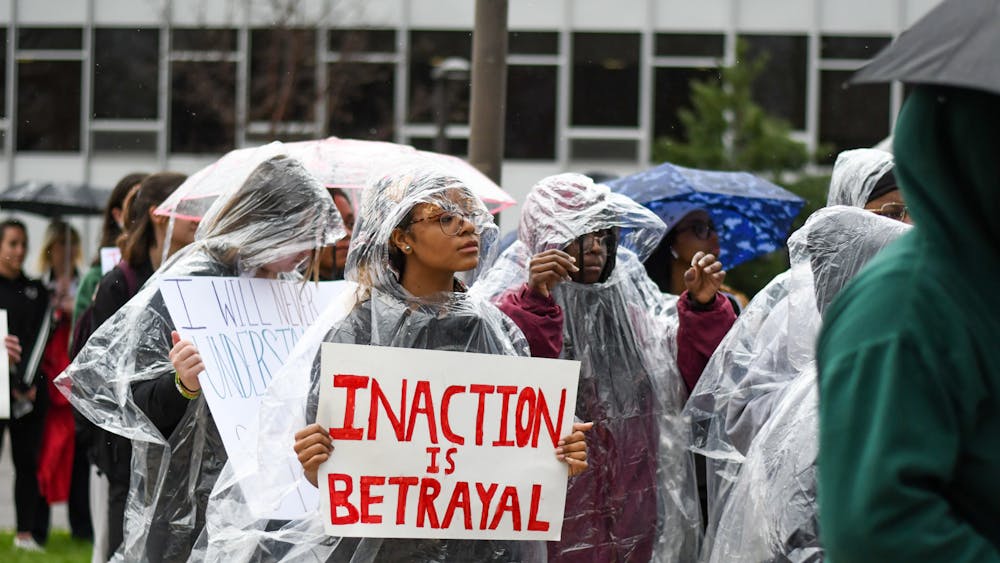Phi Kappa Tau suspended less than a year after being removed from probation
Phi Kappa Tau remains under investigation for alleged Code of Conduct violations.
The Office of Student Conduct learned of allegations made against the fraternity on Oct. 2 and the organization was temporarily suspended Oct. 5.
Citing the ongoing investigation, Director of Student Conduct Tom Idema said he could not specify what the allegations against the fraternity are or how they were reported to the Office of Student Conduct.
“Something allegedly happened that was serious enough that we felt in order to keep students of CMU safe, Phi Kappa Tau had to be temporarily suspended,” Idema said.
The temporary suspension comes less than a year after Phi Kappa Tau was removed from probation. The chapter was put on probation from March 2016 to the end of Fall 2016 following a nuisance party at its house where someone threw a beer bottle into a crowd of people.
Unlike a temporary suspension, which makes an organization unrecognized by the university, being on probation doesn’t stop an organization from regular operations, Idema said.
“Organizations operate as normal but they understand if anything like this happens again, they could be facing suspension from the university,” Idema said. “It means we’ve talked about the issue and (the organization) should be taking steps so it doesn’t happen again. We put them on probation for a period of time to prove to us that they can behave within the community standards set forth.”
This is the most recent incident involving Phi Kappa Tau that Idema has on file, prior to the current allegations against the organization.
If no violation is found during the current investigation, the suspension will be removed. If a violation is found, sanctions will be issued. Possible sanctions include a reprimand, probation, fines, suspension or dismissal of the organization.
At the end of the investigation, the chapter president and national representatives will be brought into the Student Conduct office to discuss violations and appropriate sanctions. If there is agreement, the process ends there. If there isn’t agreement, the process will continue following the Code of Conduct, allowing for a university hearing and other processes until a final decision is made.





